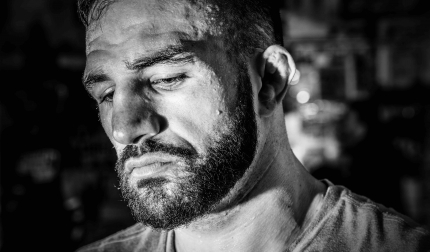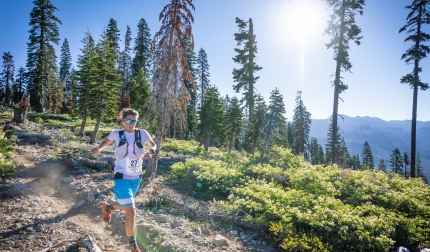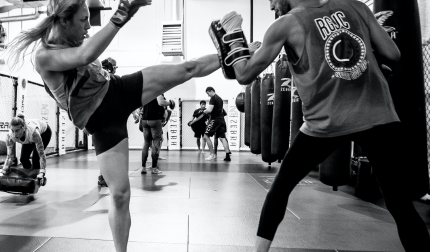How did you discover surfing?
Through an ex-boyfriend in Rio de Janeiro when I was 13. Our friends surfed in Rio, too. It’s very popular. Now it’s growing with the girls. There wouldn’t be many girls out there ten years ago, but now you see a lot more,
You moved to Hawaii when you were 17. Was that a difficult transition?
Definitely. Leaving home was hard. I didn’t have any sponsors. I worked as a waitress. I surfed all day though, and I got to meet a lot of great people. Now I have Red Bull and Billabong as sponsors and they have been great.
Why did you become a big wave surfer?
Everything about big wave surfing—the energy, the excitement, the challenge—is what attracted me to surfing in the first place. You’re living in the moment. It’s so intense. You have o give 100% focused because it’s very scary on the wave.
Can you describe the danger you feel?
The ocean itself is so unpredictable. It’s so much stronger than us, and it can be violent. You have to respect it. When a wave falls on you, it’s like being hit by a truck. You get thrown around like a doll.
You must suffer a lot of injuries doing this?
I’ve had a few broken bones. I’ve broken my nose 10 times. I don’t know why, my nose is always something that breaks easily. I’ve had to have surgery to breathe better. It’s sounds weird, but I’ve been very lucky. With hard work and training, I’ve never really missed too much time surfing. I’ve always been able to come back to it pretty quickly.
Is it true that Laird Hamilton rescued you twice on the same day?
I was surfing Teahupoo in Tahiti, and I wiped out really hard twice. Laird came in to get me both times. It didn’t stop me from going back out there though.
What’s it like to wipe out?
You can’t feel panic. If you panic, you won’t make it. You have to relax and not waste any energy. Once the wave has passed, you can go with the flow and try to get to the surface.
As a woman, you’ve been a pioneer in big wave surfing. Is it difficult being one of the few women in the sport?
Definitely. We don’t have a big association behind us to make it more of a professional thing. The women don’t have the sponsorships either. I’ve tried to use it to my advantage. Because I’m one of the few women, I can do it my own way, find my own path. It’s allowed me to be myself.
What is your most important career goal?
I want to surf the Eddie Invitational. It’s the greatest big-wave surfing contest in the world. I’m in love with the waves there, and I’m really inspired to do what I do at that event against the men.
You hold the record for surfing the biggest wave by a female—45 feet—is that the achievement your most proud of?
I’m happy, but I want to surf something bigger. I always want to surf something bigger.







